Eternal memory: residents of the Indonesian tribe have kept the bodies of deceased relatives in their homes for decades
Categories: Asia | Nations | Society | World
By Pictolic https://pictolic.com/article/eternal-memory-residents-of-the-indonesian-tribe-have-kept-the-bodies-of-deceased-relatives-in-their-homes-for-decades.htmlIt's hard to let go of loved ones who go to another world. The memory of them remains forever in our hearts, but it is no longer possible to talk to them or touch them. For this Indonesian tribe, such memories are quite tangible: they keep the remains of deceased relatives in their own homes. Moreover, they are regularly cleaned, changed into new clothes and taken out to "breathe" on the street.
Learn shocking details from the life of the tribe, where the living and the dead live side by side, from our material.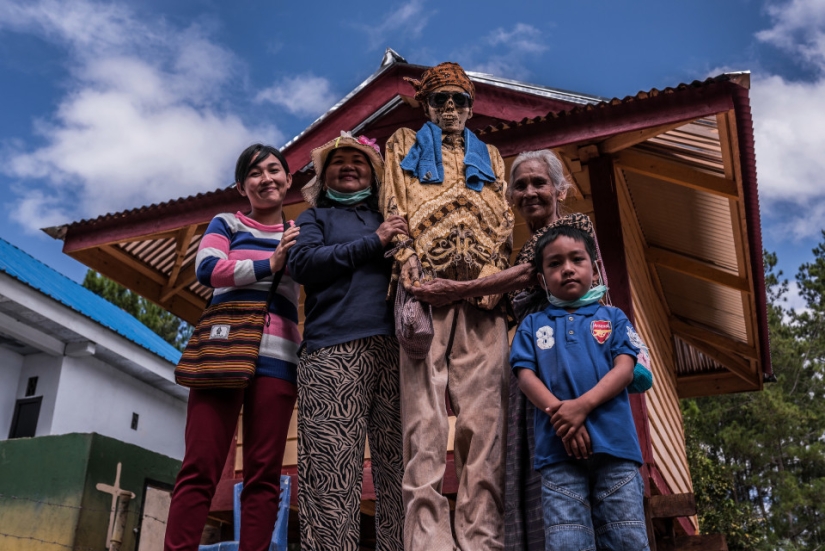 People from the Toraja tribe living in the mountainous regions of Indonesia often do not bury their deceased relatives for many years. They mummify the bodies and preserve them for as long as the corpses can withstand, so as not to fall apart.
People from the Toraja tribe living in the mountainous regions of Indonesia often do not bury their deceased relatives for many years. They mummify the bodies and preserve them for as long as the corpses can withstand, so as not to fall apart.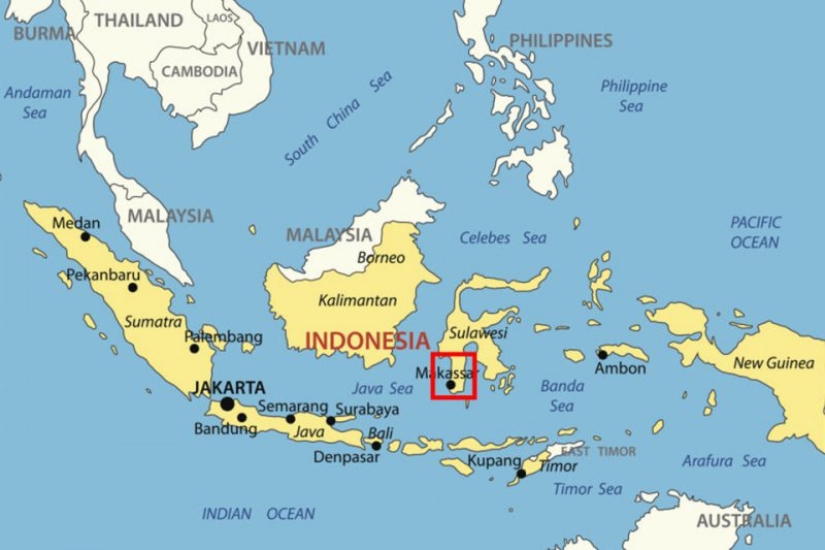 The tribe has about a million people and lives all over South Sulawesi. These people believe that after death the soul remains in the house, so the deceased are fed, watered, clothed and even given a cigarette.
The tribe has about a million people and lives all over South Sulawesi. These people believe that after death the soul remains in the house, so the deceased are fed, watered, clothed and even given a cigarette.
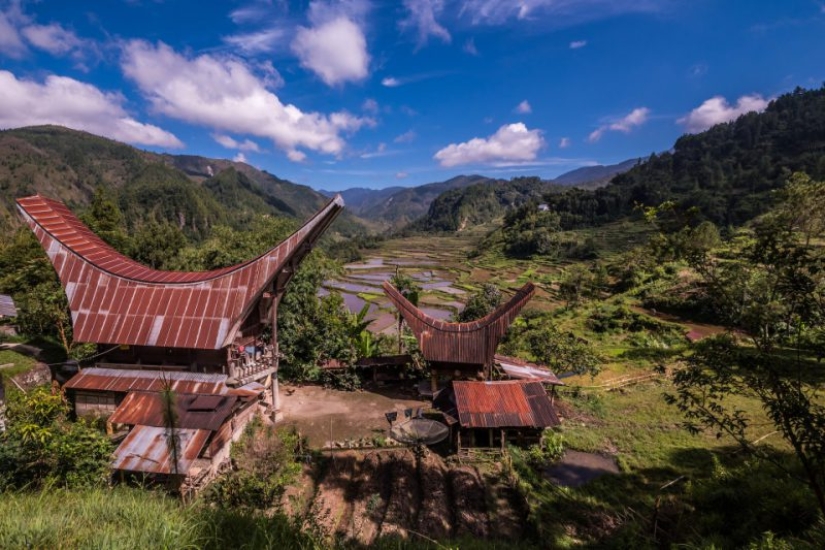 Rice cultivation is the main occupation of the local population in this part of Indonesia.
Rice cultivation is the main occupation of the local population in this part of Indonesia.
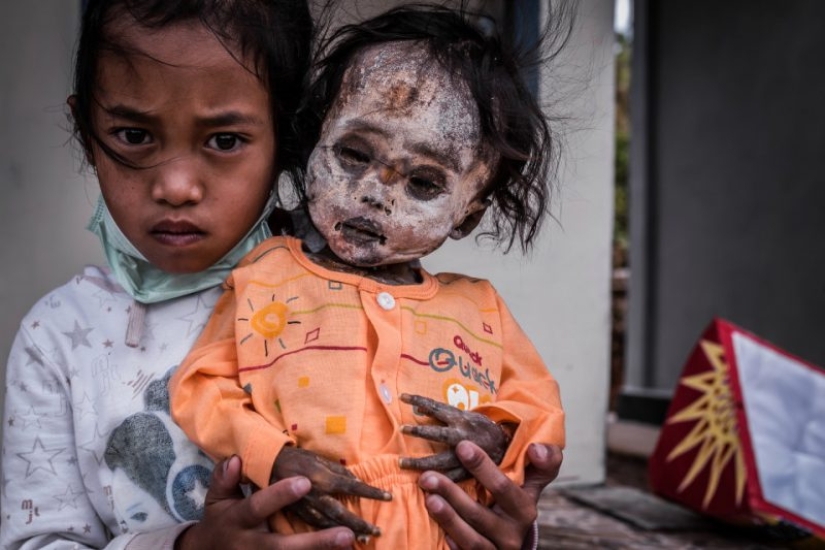 Clara poses with her sister Arel, who died at the age of six.
Clara poses with her sister Arel, who died at the age of six.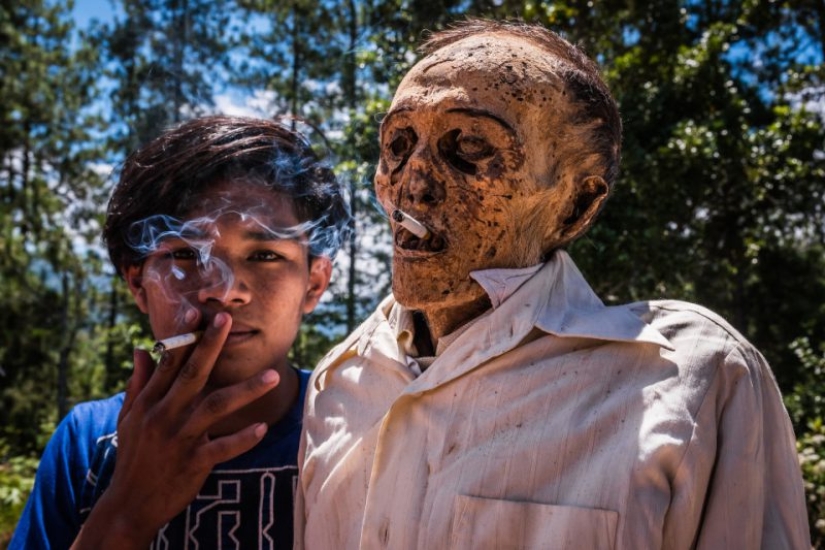 Songa died more than 40 years ago when he was 70, but even now he smokes cigarettes with his great-nephew.
Songa died more than 40 years ago when he was 70, but even now he smokes cigarettes with his great-nephew.
The bodies of the deceased begin to be processed in the first days after death, so that they do not decompose later. To do this, formalin is used — a well-known medical solution based on formaldehyde and water. But the corpse smell remains very strong, so the family keeps dried fragrant plants next to the bodies in order to somehow drown out the stench.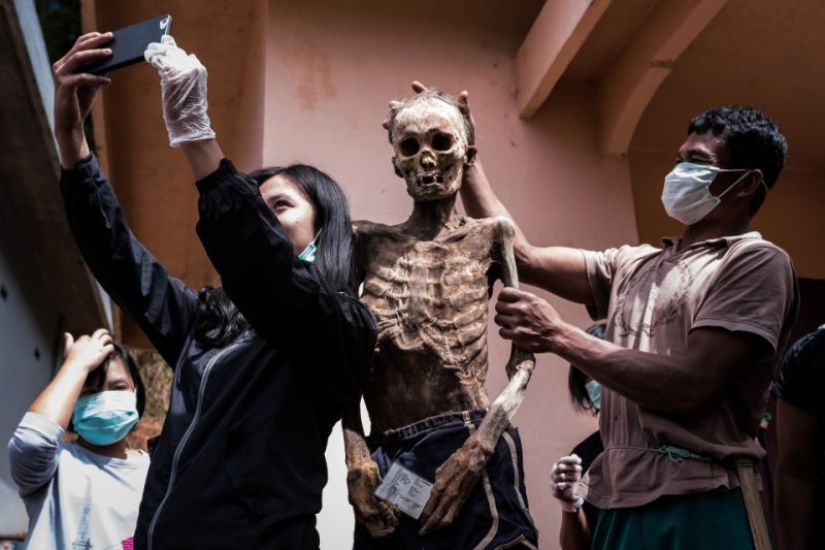
In the society of the tribe, it is believed that bodies that are stored in good conditions bring wealth to the family, so everyone tries to take care of deceased relatives as best as possible. They are wrapped in blankets and put in beds right in houses or in special buildings — tongkonans.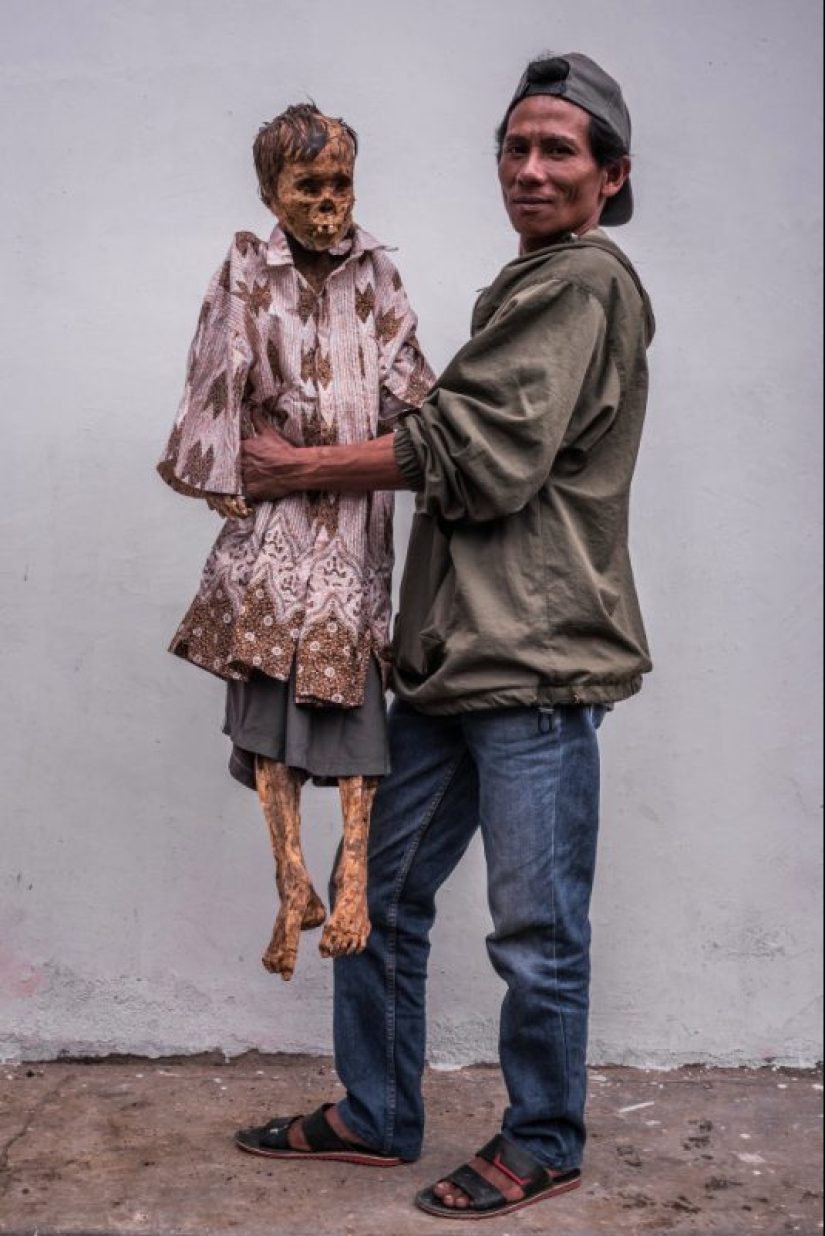
The storage of corpses continues until they begin to fall apart and rot. Sometimes the family collects money to organize a lavish funeral, which costs 700 million Indonesian rupees (3.25 million rubles), and for the upper castes — 3 billion rupees (more than 17 million rubles).
Poor people who receive an average of 1 million rupees (4,600 rubles) per month have to take out a bank loan. Therefore, young people are trying to go to the cities to earn money there for the funeral ceremony.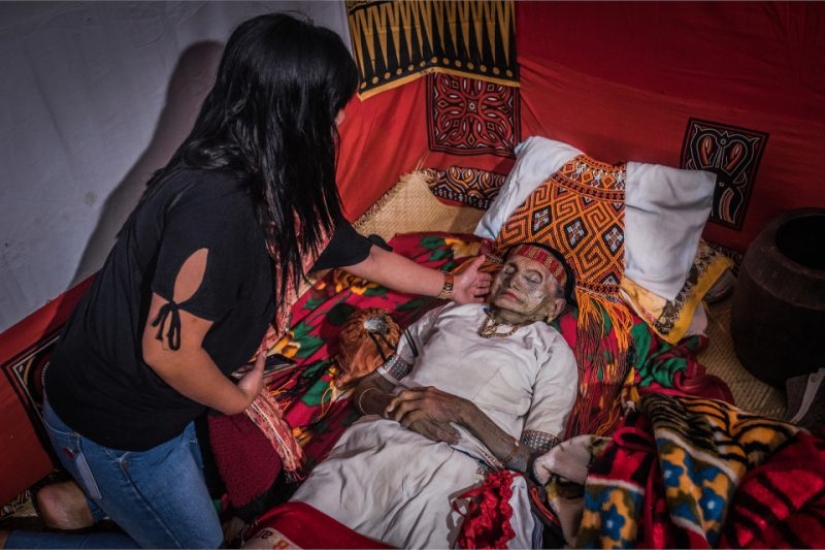
Most of the money goes to buy dozens of bulls for sacrifices, which cost from 7,000 pounds (600,000 rubles) to 30,000 pounds (2.6 million rubles). The price depends on the length of the horns and the color of the eyes.
The funeral ceremony symbolizes the official recognition of the death of a person and helps her ascend to heaven, to the resting place, which is called Puya.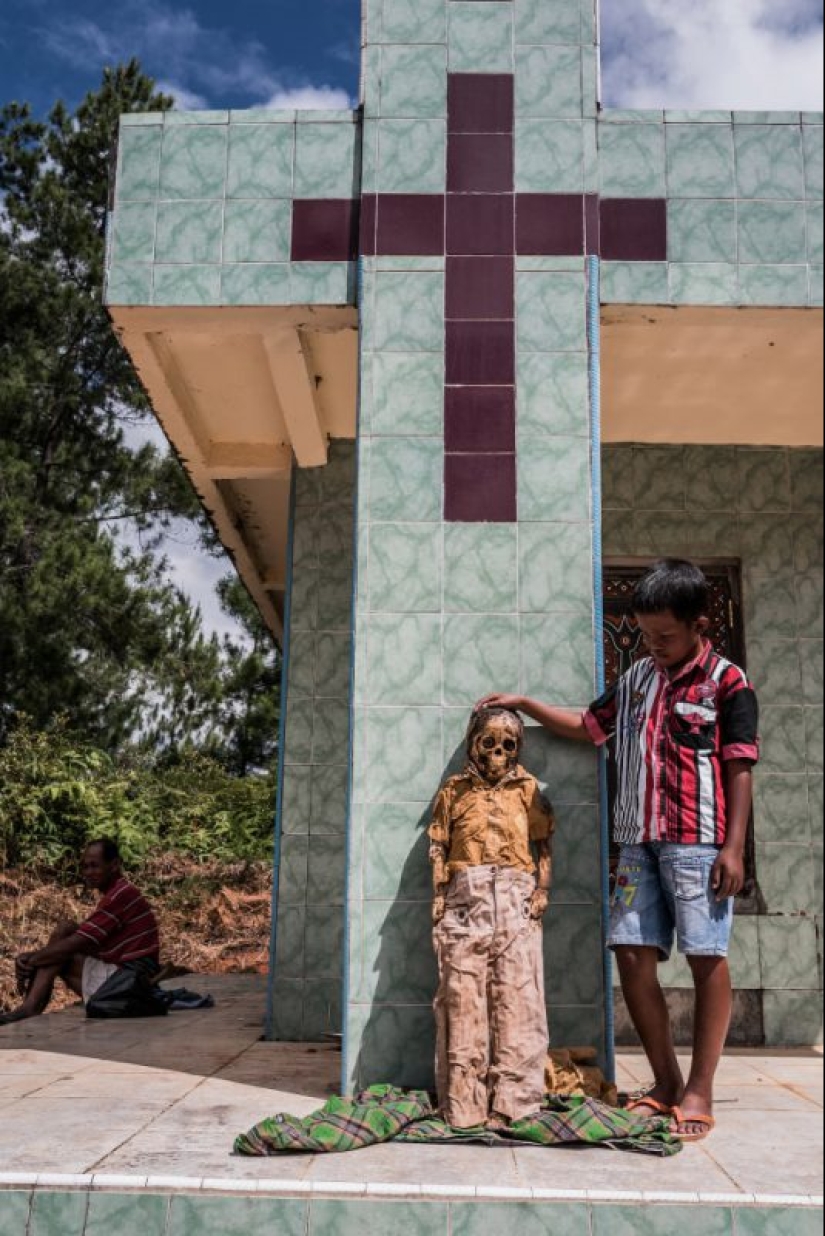
The funeral ceremony is more like a holiday than a mournful event. But even after the dead are buried in a mausoleum or in a stone grave, this does not mean that relatives will not see him again.
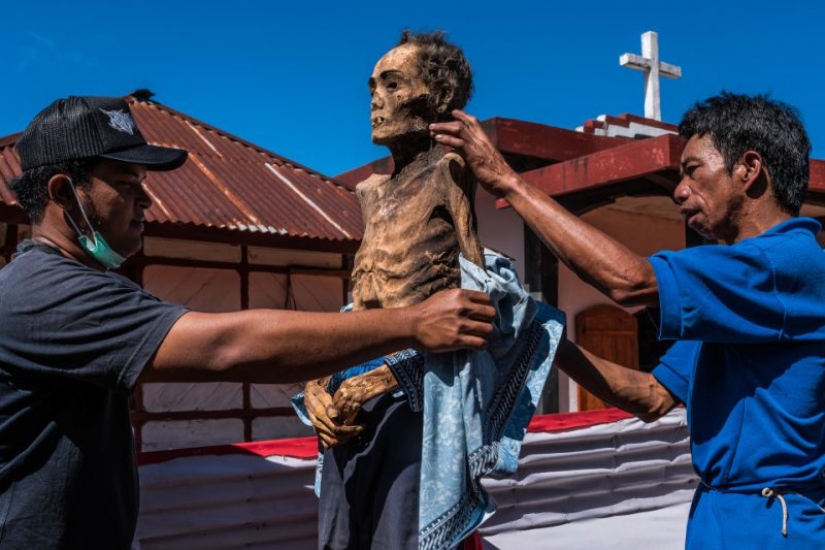
The Ma'nene ritual, which means "caring for the ancestors" in the local dialect and traditionally takes place in August, involves the extraction of the remains of the deceased from crypts and graves. The dead are taken out of their coffins, cleaned of dirt and insects, dressed in new clothes and brought to the village so that they visit relatives and friends or smoke a cigarette in their favorite place.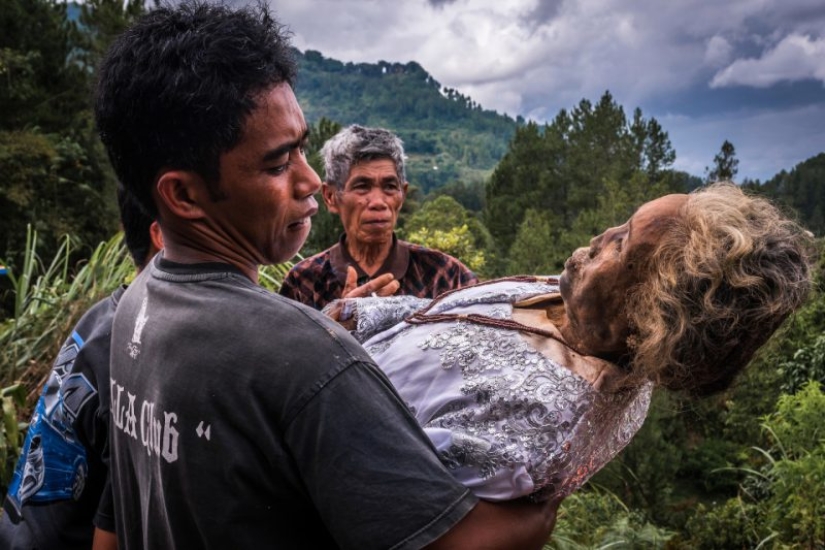
The Ma'nene ritual dates back to the IX century A.D. Nowadays, this tradition is combined with the reading of Christian prayers and the Bible. Dutch missionaries arrived here in the XVI century, but the ancient rituals of communication with relatives after death continuously stretch through generations.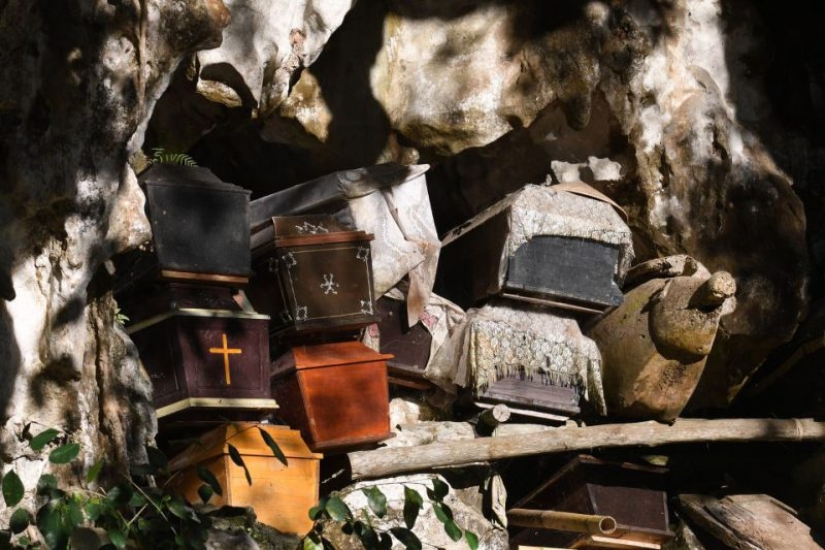
Love for their deceased ancestors and loved ones can be shown in different ways: some bring flowers to their graves, but representatives of the Toraja tribe bring the deceased home. Different views on life and death, on the real and otherworldly world do not prevent everyone who lives on our planet from appreciating and forever remembering the dear departed people. Maybe somewhere there is a common place where we will all meet.
Keywords: Tomb | Horror | Indonesia | Graves | Mummies | Tribe | Ancestors | Ritual | Tradition | Corpses
Post News ArticleRecent articles

It's high time to admit that this whole hipster idea has gone too far. The concept has become so popular that even restaurants have ...

There is a perception that people only use 10% of their brain potential. But the heroes of our review, apparently, found a way to ...
Related articles

Horror is a genre of cinema that has become a springboard into the big cinema of many venerable Hollywood actors. Laurence ...

Illustrator from Canada Mark Gagne (Mark Gagne) presented a series of works called "Ink Photography" (Inked Photography). If you ...

The suffering of Thais living in the depths of a terrible slum, carefully hidden from the eyes of tourists visiting the ...

New Year's is a time to surprise and delight loved ones not only with gifts but also with a unique presentation of the holiday ...